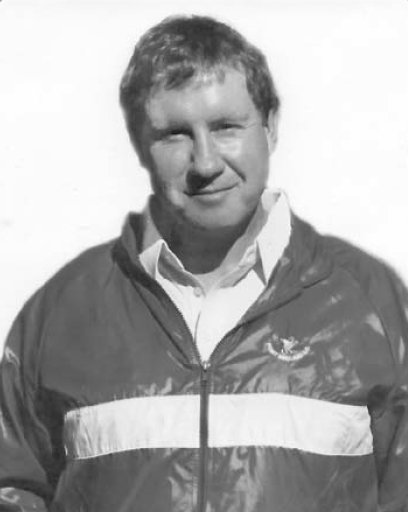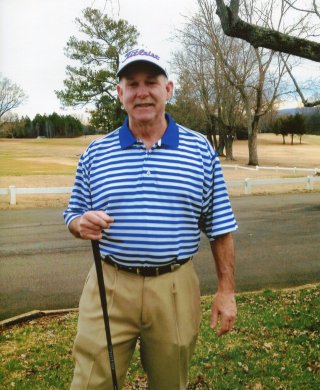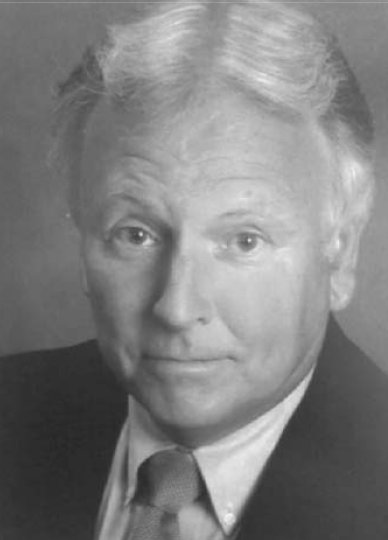

In his prime, Elvis Larkin was unquestionably one of the best amateur golfers in Alabama. But golf wasnt even on his radar when he was growing up on Hermitage Avenue in Huntsvilles Blossomwood district in the early 1950s. "Back then," he remembers, "young boys wanted to be baseball stars. I was no different." His father, Buck Larkin, owned the local Firestone store. Buck thought his only son raised in a household with three older sisters should take big-boy golf lessons from Milton Ward, the crusty pro at Huntsville Country Club. Elvis resisted. Buck insisted. Buck prevailed. "It was tough at first because Milton was brutally honest," says Elvis. "If a kid wasnt really interested, he didnt believe in wasting his own time or the parents money. I finally came to admire Milton and decided there was something to the game. Thats when I got focused." By the age of 15, he was already playing grown-up golf with the top veteran players at the club, including Bob Lowry Jr., Frank Campbell, Howard Derrick and Joe Faison. At the time, no golf club in the state not even in Birmingham could match Huntsvilles stable of exceptional players. "I was lucky to be able to learn from great players like Mr. Campbell and Mr. Lowry," said Larkin. "I was also lucky to meet another young guy, Rick Sirmon, who played golf with me every day. He was a great player and friend. Still is." While still a student at Huntsville High in 1962, Larkin won the North Alabama Junior Championship, finished second in the Alabama Junior championship, placed third in the Dixie Junior, second in the Gadsden Invitational, won the Bobby Lowry Cup at Huntsville and played in the Future Masters in Dothan. After dominating the Huntsville Club Championship in 1966, Larkin was drafted into the U.S. Army for a two-year hitch that ended with a year-long tour in Vietnam. After the Army, he enrolled at Athens College and completed his degree in 1970 which also turned out to be the most memorable year of his playing career. In a span of a few months, he won club championships at Willowbrook, Athens and Decatur, tied for low amateur at the Pot o Gold Pro-Am in Moultrie, Ga., finished 20th in the Southern Open in Columbus, Ga., was the low qualifier at the U.S. Amateur Sectionals in Nashville, then made the cut at the U.S. Amateur in Portland, Ore., where future PGA stars Lanny Wadkins and Tom Kite finished 1-2. The Amateur championship field consisted mostly of college kids, with a liberal sprinkling of older players from around the world. There was a long write-up about the tournament the following week in Sports Illustrated. SI writer Curry Kirkpatrick wrote that the competitors included "an Army private, an automotive engineer, a former state representative from Ohio, a dairy executive, a world open-court tennis champion, the former owner of the Chicago Playboy Club, a professional hockey representative, an airline pilot on strike, an Israeli Open champion, a cheese company executive, and two guys from Alabama named Elvis and Bubba." Larkin laughed when he read it. "Bubba Major from Birmingham was the Bubba," he said. "I was the Elvis." One of Larkins favorite memories was the 1970 Pot o Gold, a two-day tournament featuring a whopping field of 52 pros and 190 amateurs. "A lot of Huntsville guys showed up," Larkin recalled. "Frank Campbell and Ray Dznowski made holes-in-one. Bobby Cummings had an eagle 2 on a par-4. I shot 70, and that mightve been the best round I ever played. I tied with Jimmy Gabrielson, but we didnt play it off because of bad weather. We just matched scorecards and he was declared the winner." Five months later, Jimmy Gabrielson now a member of the Georgia Golf Hall of Fame finished in a tie for third behind Wadkins and Kite at the U.S. Amateur in Oregon. Larkin won a number of local, state and regional amateur tournaments before turning pro in 1975. In a professional playing career that lasted until 1980, his highlights included winning the Dixie Section PGA Pro-Pro Championship with Ronnie Laffoon in 1975, three Pro-Pro Championships with Lee Harper (1977, 1979 and 1980), and a runner-up finish in the 1976 Alabama Open. Larkin later became a popular teaching pro at five courses Frank House Municipal in Bessemer, Pine Tree in Birmingham, The Country Club of Birmingham, Lakeshore in Chicago and Point Mallard in Decatur. In 2004, he retired to his Decatur home after 24 years as the head pro at Point Mallard. The following year, the courses annual fall tournament was renamed the Elvis Larkin Fall Classic.

